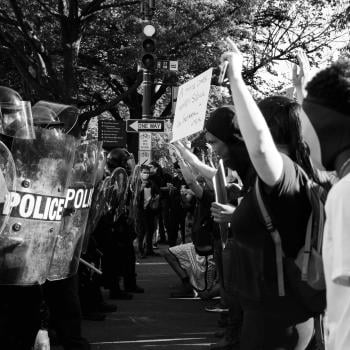As Mormons understand Mary's role, she is, with Eve, one of the two most important women in the history of the world.
Mormons accept the traditional Christian reading of Isaiah 7:14 as a prophecy of Christ: "Behold, a virgin shall conceive, and bear a son, and shall call his name Immanuel." Book of Mormon prophets such as Nephi, King Benjamin, Ammon, and Alma honored her, knowing who she was and what she would do before she was born (1 Nephi 11:18-20; Mosiah 3:8; Alma 7:10, 19:13).
Though Latter-day Saints are sometimes nervous about giving honor to Mary, a prominent LDS apostle and writer from the 1970s and '80s said that we should "hold up Mary with that proper high esteem which is hers" (Bruce R. McConkie, The Mortal Messiah, Vol.1, 327). I assume that the esteem proper to the mother of the Savior is considerable.
Mary's life was not one of comfort or ease: betrothed at the age of approximately fifteen, Matthew 1:19 suggests that she became the object of gossip in her village, and her fiancé seriously considered breaking their betrothal.
But Matthew's genealogy of Jesus reminds us to beware of appearances when it refers to four women, something most genealogies of the time did not do. Matthew 1:1-17 tells us of: Tamar (she tricked Judah into impregnating her; Gen. 38); Rahab (a prostitute who protected Joshua and his men when they spied on the Canaanites; Josh. 2); Ruth (though it is not obvious in the King James translation of the story, there are elements of the story that could be taken to imply that she was unchaste with Boaz before their marriage); and Bathsheba (the woman David raped; 2 Sam. 11:2-17). Like Mary, each of these women, all of them included in Matthew's ancestry of the Savior, were judged by others to be guilty of sexual sin. Like each, she was innocent.
But Mary's difficulties did not end after her marriage to Joseph. Tradition suggests that she was widowed before she was fifty. Her oldest son was publicly executed as a traitor and criminal, and she had to rely on one of his friends for support for the rest of her life.
The New Testament tell us that Mary knew from the time she was sixteen or seventeen that her life would be a difficult one. At the temple, Simeon prophesied not only that Jesus would be the Savior, but that "He shall be as a sign for to be spoken against; Yea, a sword shall pierce thine own heart also" (Lk. 2:34-35). At the same time, perhaps because of her difficulties, she was an exemplary person.
She was humble: "He hath regarded the low estate of his hand-maiden: for, behold, from henceforth all generations shall call me blessed" (Lk. 1:48). And she was obedient. As McConkie says:
Mary gave the answer that ranks, in submissive obedience and divine conformity, along with the one given by the Beloved and Chosen One in the councils of eternity. When he was chosen to be the Redeemer and to put into operation the terms and conditions of his Father's plan he said: "Father, thy will be done, and the glory be thine forever" (Moses 4:2). Mary said simply: "Behold the handmaid of the Lord; be it unto me according to thy word" (Bruce R. McConkie, The Mortal Messiah, Vol.1, 319-320).
Those words, "be unto me according to thy word," appear to typify Mary's attitude toward life. Without complaining or rancor, she lived her life as she was required to do.
Tradition tells us that Mary was devoted to others. For example, she moved to Ephesus with John the Beloved, following him and loving him as if he were her own son because Jesus had given John to her as a son (Jn. 19:26).





